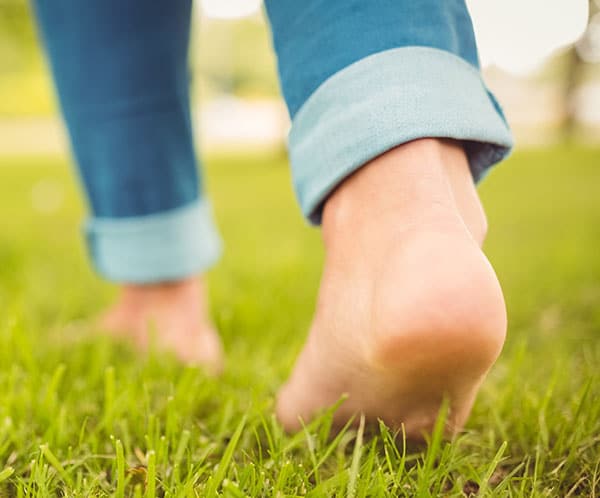Foot & Ankle Arthritis
Arthritis can do more than cause pain and discomfort in your joints. It can sap your energy, decrease your motivation, and make daily life more of a struggle than it needs to be.
The effects of arthritis in the feet and ankles can be particularly debilitating, and can interfere with the mere processes of standing and walking. A reluctance or inability to move can have not only wide-ranging negative effects on our physical health, but our mental health as well.
When we address arthritis in this area, our goals are to maintain a patient’s mobility and keep their movement as comfortable as possible. Whether these suggested treatments are conservative or surgical will depend upon the overall health, lifestyle and needs of each patient, but we do encourage conservative methods whenever possible.
First, however, we must always determine what kind of arthritis we are dealing with.
Different Forms of Arthritis
When we say “arthritis,” we are referring to a group of more than 100 diseases. The word itself describes their main symptom: joint inflammation. The means and underlying causes of this inflammation can vary from condition to condition, but the common thread remains.
When diagnosing arthritis in the feet and ankles, there are several common forms to consider:
Osteoarthritis
Osteoarthritis is the general “wear and tear” many people first imagine when thinking of arthritis. The cartilage that protects the two bones of a joint wears away over time. As it does, the bones can begin to rub together, causing progressive pain and stiffness in joint motion.
While age is a risk factor for osteoarthritis, it is not the only one. Being overweight, having had a previous injury to the joint, and having a family history of the disease can also increase one’s risks.
Rheumatoid Arthritis
Rheumatoid arthritis is an autoimmune disorder. Instead of joints being damaged through mechanical use, the body’s own immune system is attacking the tissues around its joints.
The foot and ankle are common starting points for rheumatoid arthritis, but the effects can spread to joints throughout the body. The immune system typically attacks a protective layer covering over a joint called synovium. This will grow inflamed and swell, damaging the cartilage and bones of the joint over time.
The exact cause of rheumatoid arthritis is yet to be found. It is not believed to be inherited in itself, although certain genetic factors may make someone more likely to acquire this disorder.
Gout
If you have gout, you will likely know it by the intense “flares” of pain that may strike your big toe, often at night. Although other joints are possible to be affected, the big toe is most common.
Gout arises due to the buildup of uric acid crystals in the joint, causing inflammation and severe pain. While uric acid is normally dissolved and passed through the body, it can end up accumulating if the body produces too much.
Treating and Managing Arthritis
Before we can begin treatment, we must determine the type and extent of arthritis that is causing you problems. We will conduct a full examination, and will likely ask questions about your history, including:
- When the pain started.
- Whether the pain is continuous or “off and on.”
- When pain and stiffness are the worst.
- Whether your family has a history of arthritis.
- Whether you have had any injuries to your foot or ankle in the past.
We may also examine your gait (how you walk) and how weight is being distributed across your feet. Additional data such as x-rays and blood tests may also be requested.
Depending on the diagnosis, we may recommend one or more forms of conservative treatment for managing pain and increasing mobility. These may include the use of custom-made orthotics to redistribute forces away from painful areas, as well as physical therapy and exercise to reduce pain and increase stability around an affected joint.
Pain relief measures such as occasional corticosteroid injections might also be suggested. In the case of gout, dietary changes will most likely be recommended to reduce the buildup of uric acid in the body.
If conservative methods have not worked as needed, surgery might then be considered an option. If it is, we will be sure to fully explain the pros and cons of a procedure with you to ensure decisions can be made with full information.
If you are suffering from arthritis pain, don’t wait any longer to receive the help you deserve. Schedule an appointment with our Eugene office by calling (541) 683-3351 or fill out our online contact form below to receive our advanced treatments.
Contact Us
Eugene
P: (541) 683-3351
F: (541) 683-6440
Hours:
Monday............ 8:00am - 5:00pm
Tuesday............ 8:00am - 5:00pm
Wednesday............ 8:00am - 5:00pm
Thursday............ 8:00am - 5:00pm
Friday............ 8:00am - 4:00pm (Only available on phones)
Closed for lunch from 12pm - 1pm and closed until 1:30pm on Tuesdays
© Copyright 2024 Eugene Foot and Ankle. All Rights Reserved. | Privacy Policy.


